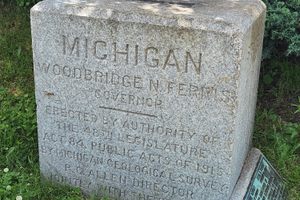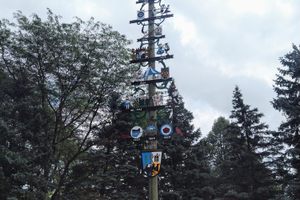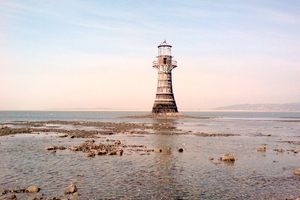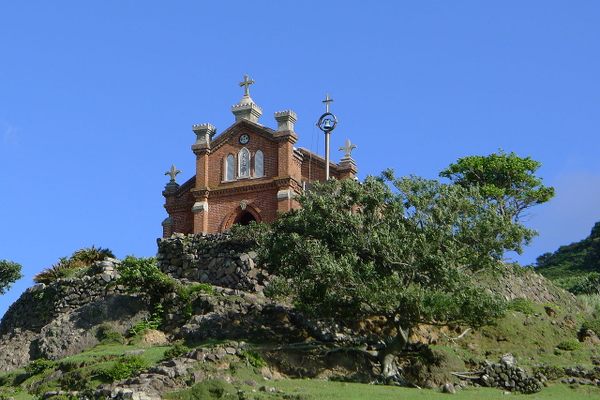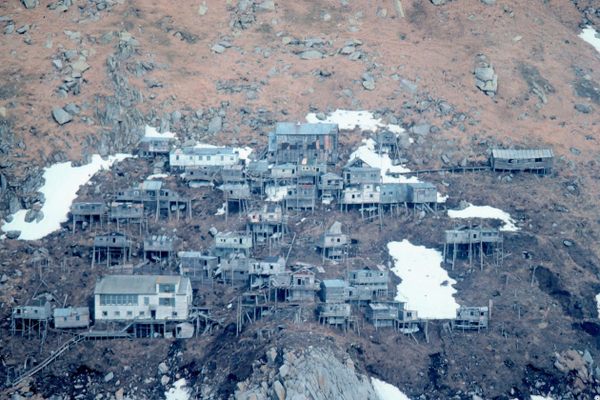About
For its small size of 1.5 acres (0.6 ha), Turtle Island has a strange and unique history. Prior to Western colonization, members of the local Miami tribe would come to the island to forage for bird eggs. There is no known archaeological data to suggest permanent or even seasonal settlement by the Miami.
The British occupied the island starting in 1794 and built a small fort. However, conflicting reports cannot account for how long the British stayed on the island. Some local archives suggest the island was occupied until 1812 while others seem to show the island was back in use by the Miami as early as 1796.
After the War of 1812, the island became territory of the United States but was not used by the government and was sold at auction in 1827. By 1831, it had been returned to government control and allocated for the building of a lighthouse for the Port of Toledo. At the time, the island itself was over 6 acres (2.5 ha), but by 1839 winter storms had eroded the island down to its current size despite attempts to prevent the erosion by the government and the spending of tens of thousands of dollars in the process.
Despite the erosion, as the Port of Toledo grew, the need for a bigger lighthouse was met with a 44 foot (13 m) brick tower whose light could be seen by ships up to 14 miles (23 km) away. A concrete breakwater was installed on the east and south sides of the island around 1883 to prevent the continued erosion that threatened to topple the lighthouse.
The lighthouse was closed in 1904 and the island fell into disuse. The lighthouse and residence had been vandalized and everything of value that had remained was missing by the 1920s. An attempt to build vacation houses was made in the 1930s, but never came to fruition. On Palm Sunday in 1965, a tornado destroyed the lighthouse keeper's residence and damaged the lighthouse itself, completely removing the upper section of the structure. The wrought iron framework is clearly visible.
As a result of the nearly bloodless Toledo War between Michigan and Ohio in 1836, the island itself was recognized as part of Michigan, however the lighthouse belonged to Ohio. After a ruling by the Supreme Court of the United States in 1973, the island was split in half with the lighthouse-side going to Ohio and the northern half remaining in Michigan thus making it an unique political entity.
Attempts continued as late as 2002 to open the island as a vacation spot and several rental houses had been built in the wooded center of the island. A derelict bulldozer and construction crane sit on the western shoreline, with the crane leaning heavily and in risk of falling into Lake Erie. Water has broken through the concrete barriers, sitting stagnantly on the eastern side of the island, creating a breeding ground for mosquitoes and biting flies in summer months. Vandals have damaged many of the homes and garbage is scattered all over the island.
Some structures were severely damaged during the winter of 2009 and are dangerous to enter with one house having been moved off its foundation by ice packs that came ashore on the nearly flat island.
The island is currently privately owned and signs on the western shore -the only area safe to land small boats- warns against trespassing. On one building, the Second Amendment of the Constitution (the Right to Bear Arms) is painted in large, red letters. However, as evidenced by the vandalism and garbage, people routinely ignore the warnings posted on the uninhabited island. As trespassing is illegal in both Michigan & Ohio, landing on Turtle Island is prohibited unless permission is obtained from the owner.
Related Tags
Know Before You Go
5 miles northeast of Maumee Bay, OH. There are no docks but small craft can land on the western side of the island. Signs warn against trespassing.
Community Contributors
Added By
Published
October 14, 2011















